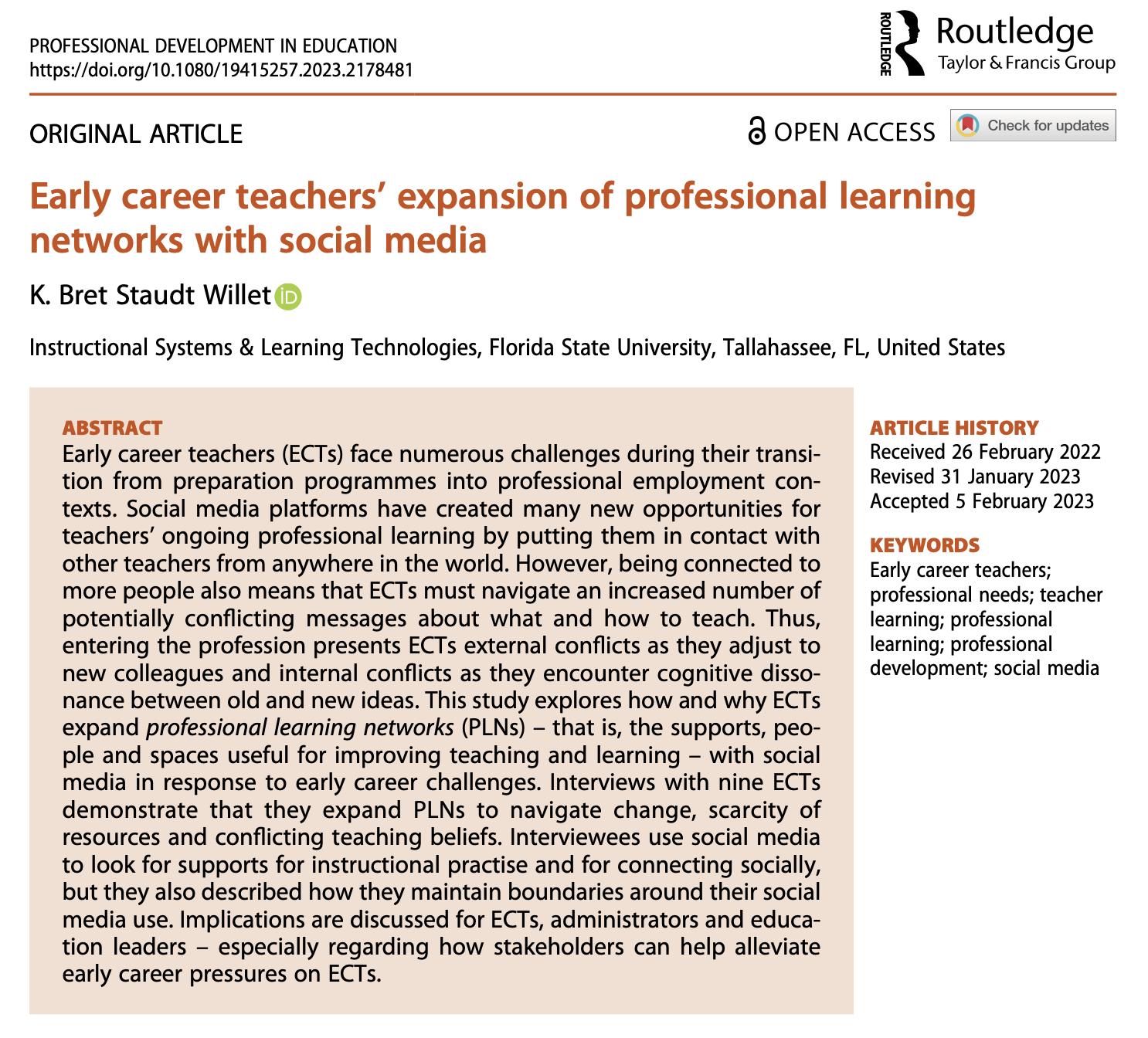
New Paper: Early Career Teachers’ Expansion of Professional Learning Networks With Social Media
Background
I recently had an article titled “Early career teachers’ expansion of professional learning networks with social media” published in the journal Professional Development in Education (DOI:10.1080/19415257.2023.2178481). I am particularly excited about this publication for a few reasons:
First, this article reports the heart of my dissertation work from a few years ago. It has taken a long time and several rejections to get to this final form, which is some of the best writing I’ve done. I appreciate the many reviewers along the way who have provided invaluable feedback.
Second, Professional Development in Education is a journal very much aligned with my research agenda, so I anticipate publishing here again in the future. I am thrilled to have my work appear alongside so many other interesting and high quality pieces.
Third, thanks to a new grant from the FSU College of Education, I was able to secure the funds necessary to publish this article as a permanent Open Access piece. A frequent critique of academic work is our distance from practical concerns, with much of what we write restricted behind journal paywalls. So, to have this article, with poignant quotes from early career teachers and recommendations to a wide variety of educational stakeholders (plus implications for anyone starting a new job), freely available forever makes me incredibly happy.
If you’ve read this far, I hope you’ll take a moment to skim through the article too, openly available on Taylor & Francis’s website.

Here is the abstract:
Early career teachers (ECTs) face numerous challenges during their transition from preparation programmes into professional employment contexts. Social media platforms have created many new opportunities for teachers’ ongoing professional learning by putting them in contact with other teachers from anywhere in the world. However, being connected to more people also means that ECTs must navigate an increased number of potentially conflicting messages about what and how to teach. Thus, entering the profession presents ECTs external conflicts as they adjust to new colleagues and internal conflicts as they encounter cognitive dissonance between old and new ideas. This study explores how and why ECTs expand professional learning networks (PLNs) – that is, the supports, people and spaces useful for improving teaching and learning – with social media in response to early career challenges. Interviews with nine ECTs demonstrate that they expand PLNs to navigate change, scarcity of resources and conflicting teaching beliefs. Interviewees use social media to look for supports for instructional practise and for connecting socially, but they also described how they maintain boundaries around their social media use. Implications are discussed for ECTs, administrators and education leaders – especially regarding how stakeholders can help alleviate early career pressures on ECTs.